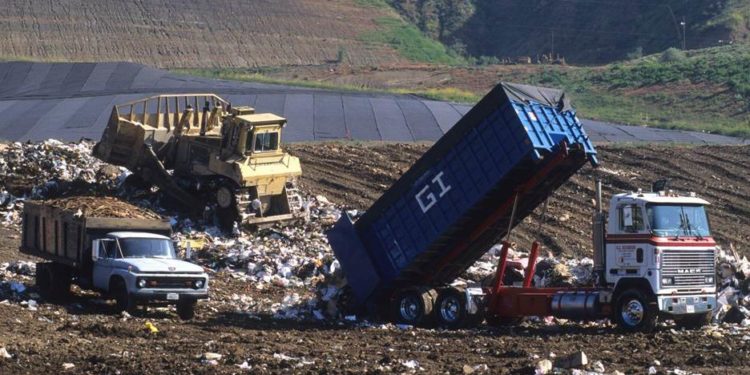Keeping our planet clean and safe is something we all need to care about. Trash is everywhere-from homes and schools to factories and cities-and it keeps growing each day. The way we deal with this waste can make a big difference for the Earth, for people, and for future generations.
If you are looking for simple and effective ways to help your community and the planet, learning about sustainable waste management is a great place to start. Keep reading to find out how waste affects the environment and what you can do to help improve the way we manage it.
Understanding What Waste Really Is?
When we think of waste, we often picture food wrappers, plastic bottles, or old furniture. But waste is more than just the garbage we throw away every day. It also includes leftover food, broken electronics, yard clippings, building materials, and chemicals. Each type of waste needs to be handled in a specific way to keep people safe and protect nature.
Some waste breaks down easily and becomes part of the Earth again. Other waste, like plastic and metal, can stay around for hundreds of years if it is not recycled or reused. Chemicals and harmful materials can leak into the soil or water, which can make people and animals sick. That is why sorting waste, reducing what we throw away, and choosing smarter ways to reuse materials are such important parts of sustainable waste management.
How Reducing Waste Helps Everyone?
One of the best ways to handle waste is to create less of it in the first place. When we buy only what we need, reuse what we can, and fix things instead of throwing them out, we create less trash. This helps reduce the need for large landfills, which can take up space and create pollution. It also saves energy and money, as recycling requires fewer resources than producing new products from scratch.
When communities work together to reduce waste, they can keep parks, rivers, and streets cleaner. They can also create safer environments where people are less likely to become ill due to pollution.
Local businesses and schools can lead the way by using less plastic, setting up recycling stations, and teaching people how to sort waste correctly. These small actions can grow into big changes that help everyone live in a healthier and cleaner place.
The Role of Recycling and Composting
Recycling is a key part of sustainable waste management. It means taking used items and turning them into new products. Paper, glass, cardboard, metal cans, and some plastics can all be recycled if they are clean and sorted the right way. When we recycle, we use less water, save energy, and produce fewer greenhouse gases, which helps fight climate change.
Composting is another great way to manage waste in a sustainable way. Instead of throwing away food scraps, leaves, and other natural materials, we can turn them into rich soil that helps plants grow. Composting keeps food waste out of landfills and turns it into something useful. Schools, farms, and even families at home can start composting to help the environment and reduce the amount of waste sent to the dump.
Some waste, like electronics or batteries, should not be thrown into regular trash or recycling bins. These items contain materials that can be dangerous if they break down in landfills. Special drop-off centers or recycling programs can handle these items safely. Learning what can and cannot be recycled is a big part of making better choices.
One helpful way to manage large amounts of trash, such as during a home project or community cleanup, is to look into affordable dumpster rentals in Middletown DE, where waste can be collected and sorted in a safe and responsible way.
Working Together to Build Cleaner Communities
Sustainable waste management works best when everyone takes part. Families, schools, businesses, and local governments all play an important role in creating systems that make it easier to reduce, reuse, and recycle. Clear rules, good signs, and regular reminders can help people know what to do with different types of waste. Events like recycling days or cleanup weekends can bring people together to care for their neighborhoods.
Schools can teach students about how waste affects the planet and how their choices matter. They can set up recycling bins, use less paper, and start garden projects using compost. Businesses can reduce packaging, switch to reusable supplies, and find new ways to cut down on waste. Towns and cities can support these efforts by providing services like compost pickup, hazardous waste drop-off, and public education programs.
New technology is also helping people manage waste more effectively. Smart bins can track how full they are, and waste-to-energy plants can turn certain types of trash into power. These tools help reduce how much waste ends up in landfills and offer new ways to reuse materials. But no machine can do the job alone. People still need to make smart choices every day about how they buy, use, and throw things away.
A Cleaner Future Starts with Simple Steps
Making changes to how we deal with waste may sound hard at first, but even small steps can lead to big improvements. By saying no to single-use items, reusing bags and containers, and learning what can be recycled or composted, we take important steps toward protecting the Earth.
Teaching kids about waste, setting up home recycling areas, and supporting local cleanup events are great ways to get involved. Talking to neighbors, friends, and family about the importance of waste reduction can inspire others to join in. When more people care about the problem, better ideas and solutions start to grow.
A Smarter Way to Handle Waste
Sustainable waste management is not just a goal for the future-it is something we can begin right now. By learning more about what we throw away and making small changes to reduce, reuse, and recycle, we take steps that protect our environment and improve our lives.
The choices we make today can lead to a cleaner, safer, and more beautiful world for everyone. Let’s work together to make waste management smarter, greener, and more sustainable for the generations to come. Expand your knowledge and check out more posts on our blog!





![7 Best POS Software in the UK [2026 Edition]](https://todaynews.co.uk/wp-content/uploads/2026/02/7-Best-POS-Software-in-the-UK-2026-Edition-360x180.png)





































































